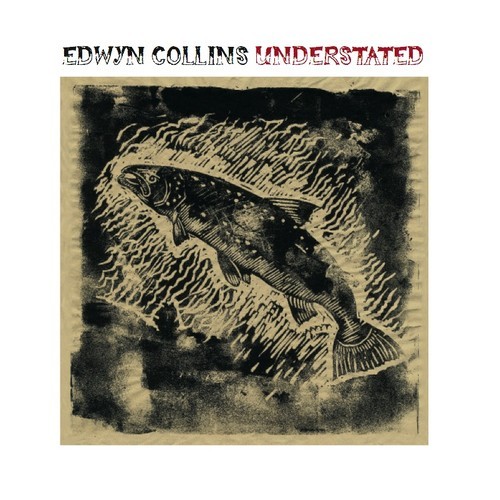Understated is the third album to be released since Edwyn Collins suffered a double brain haemorrhage in 2005. That, of course, is an overwhelming achievement in itself. For the resulting record to reach the heights that Understated does, however, is a feat that is nothing short of incredible. As Collins continues down a long road of rehabilitation, he is, as yet, physically unable to contribute fully to his music’s instrumentation, and so he becomes the auteur and voice of Understated.
And it’s in his voice that the album’s beauty is rooted. It is wrought with the scars of a struggle that arrived out of nowhere and brought the world of the former post-punk prodigy crashing down, forcing him to build from the ground up over the last eight years. Collins’s diction isn’t perfect but it’s a symbol of his story; a reminder that beauty, and indeed life itself, are not flawless constructions.
Some of Collins’ finest work can be found here. Stylistically, it is rammed with highlights for solo fans and Orange Juice devotees alike, working its influences into a patchwork of 60s-infused pop, soul and folk.
The Motown soul of ‘Too Bad (That’s Sad)’ with its George Harrison slide guitar solo and pounding tambourines is lush and uplifting, its titular refrain crystallising Collins’s modest understatement on his own situation. Similarly, ‘Carry On, Carry On’, makes a play for the blue-eyed soul void left by Weller and Talbot when they disbanded The Style Council in 1989, while closer ‘Love’s Been Good To Me’ provides the album’s most strikingly beautiful moment, ensuring that Understated will fade out to hushed silence in the ears of its listeners. An acoustic lullaby to lovers of yesteryear, the trademark Collins major-to-minor shift ought send shivers down the spine.
The real magic of the album, however, comes from its honesty. Hidden underneath some of the sunniest pop you’ll hear this year lurks a brutally frank transcript of Collins’s own autobiography. This realism stops the album from ever becoming cloying. Lyrically, Collins keeps his messaging quite simple. For a writer who has created such vivid verbal vistas as ‘Falling And Laughing’ and ‘Tender Object’, the constructs on Understated can be seen as a departure, but what it lacks in poetic complexity it more than makes up for in the economy of its effect. On ‘Forsooth’, for example, Collins’s refrain of "I’m so lucky to be alive" couldn’t be more literal, however it manages to simultaneously straddle heartbreak and delightful inspiration. ’31 Years”s repeated coda of, "What the heck, I’m living now," is, again, free of the flowery, archaic verse of early Collins, but comes off as no less affecting.
Understated, then, is a life-affirming album in the strongest sense, born of a hand that so nearly wasn’t there to create it. It’s impossible to dispense with the lens of Collins’s personal struggle when assessing his newer work. Fortunately, however, imagination, as well as conviction, shines through in each and every pore of the record’s fabric. The songs are conduits through which Collins conveys his initial terror, ongoing pragmatism and ultimate optimism but they are pulled off with swagger, class and the songwriting craftsmanship of a master, propelling this excellent pop record far beyond a poignant diary entry.


